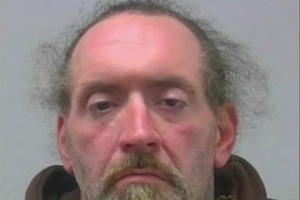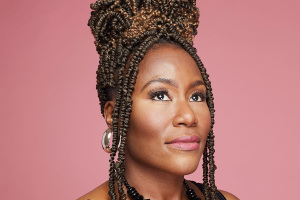Interview: Andy Stanley on the Principle of the Path
Too often people get themselves into undesirable situations and wonder, "How did I get here?" But Pastor Andy Stanley, founder of the Atlanta area-based North Point Ministries, contends that a powerful principle is at work in everyone's life that determines a person's destination.
Stanley, whose worship services draw over 20,000 adults each Sunday, spoke to The Christian Post this week about his new book The Principle of the Path.
CP: What is the Principle of the Path?
Stanley: The principle of the path is direction not intention determines our destination.
CP: Can you explain why you say people should stop looking for solutions to problems and look for the right path?
Stanley: As a pastor I've spent 30 years talking to people and heard every kind of story imaginable. Often times when people tell their story they conclude by saying, "I don't know how I got to where I am." Sometimes it's financially, sometimes it's relationally, sometimes it's with their marriage, their kids, their parents, academically, professionally, whatever. So they ask, "How in the world that I end up here?"
And as I listen to their story about half way through I think, "Well it is pretty obvious how you got here. This is the path you chose." But for many of us there is a disconnect between where we intend to be and the path we choose, and the path that we choose in life - whether it is financially, relationally, morally - always trumps our intention.
So people pray in one direction but they walk in a different direction, and direction always determines where we end up.
CP: Why do so many people live disconnected lives, not recognizing that decisions they make will have effects on their life in the future?
Stanley: Part of it is because we are surrounded by people who all are moving in the wrong direction with us. As you look at what is happening in our country financially, lots and lots of people made the same bad decision – whether it is too much debt, too big a house, not enough savings – and when everybody around me is doing the same thing I'm doing it is easy to deceive myself to think that it will work out.
So we really deceive ourselves and make emotional decisions and when we end up where those decisions take us, we are just baffled as to how this can happen to us. Well, it is the direction we chose.
The reason I wrote this book is in order to take what is a very obvious principle in the realm of driving, or hiking, or biking and say the same principle applies to living. That the direction you choose has a predescribed and predetermined destination.
So if you want to end up in a good place, you have to move in the right direction. And as obvious as that is and as easy as that is to see in the lives of other people, especially if you have children, it is very difficult to see this in the mirror.
CP: Why do you warn readers that their heart can't be trusted? How does it relate to the Principle of the Path?
Stanley: I think that experience tells us and the scripture tells us that our hearts are deceitful. We are all able to deceive ourselves. We are easily deceived. In fact, anybody who has ever been "in love" will look back on their relationship and think what in the world was I thinking. Well that is the example of how easily our hearts are deceived.
Consequently, we need objective, outside input in our lives, especially as it relates to major decisions in life. Money is an emotional thing. We are easily deceived by the shiniest, fastest, most modern thing. So consequently we talk ourselves into decisions and then come up with reasons to support these bad decisions. Again, this is so easy to see in the lives of people around us but it is very difficult to see in the mirror.
So consequently, this principle will hopefully get people to realize, wait a minute, I am hoping to end up somewhere my feet isn't taking me at this very moment. In the book, I give a list of these disconnects.
There is this young girl who says I want to marry this guy who has character, who will be faithful to me and love me my whole life, but then she dates whoever asks her out. A guy says I want to have a healthy, wonderful sex life when I'm married and then he sleeps around with whoever he dates. So you know somebody says they have an intention, but then in terms of the path they choose they move in a different direction.
Or a couple who gets married and has all these lofty financial goals and dreams and they want to be secured and in a healthy place financially, but then they load up on consumer debt and wonder how in the world are we so far from where we intended to be. It is because they chose a path.
CP: Can you explain about what you mean when you write that most people are on a happiness quest rather than a truth quest?
Stanley: Most of us wake up everyday and make decision that will make us happy, and generally decisions that will make us happy right then in the moment or that day. We are not really on a truth quest. A truth quest is what is the best thing for me to do now in light of my future hopes and dreams? What is the right thing for me to do right now in light of my future hopes and dreams?
Often times, the wise thing to do requires discipline. The wise thing to do requires sacrifice now. But because most of us are on the happiness quest we avoid what is true and the happiness quest often times tempts us down the wrong path. And again, we can all look down our lives relationally, financially and see examples of this, but for some reason when we are in the moment, having to make a decision, we lose sight of this.
CP: What are some ways we can take advantage of the Principle of the Path?
Stanley: The primary way is to somehow just to keep it front and center in their thinking and remember that every single day this principle is operating in my life, because every single day I am walking down a financial path of some sort, a relational path, a spiritual path, academic or professional path or whatever. Wherever we're moving life is connected, life is dynamic.
So to ask the question of where do I want to be in these major areas of life three or four years from now and am I making decisions today that are moving me in that direction, or am I making decisions that are moving me away. That kind of thinking helps us overcome self-deception and hopefully will help us make the right kinds of decisions.
CP: What do you most want readers to take away from this book?
Stanley: I want them to stop and do some self-examination. I have a friend whose daughter was in love with this guy and she asked her a great question. She kept saying, "I love him! I love him! I love him!" And her mom finally said, "Honey, but what do you love about him?" She couldn't really come up with anything good about him, she was just in love with him.
Well, that's the kind of question that will stop a person in the midst of their self-deception and say, "Wait a minute, I'm moving in a bad direction and allowing my emotions to take me there." So I hope this book will help people who are making decisions to stop and reevaluate their direction and for people who find themselves in a place they don't want to be to learn to leverage this principle to get where they are to where they really want to be in life.




























